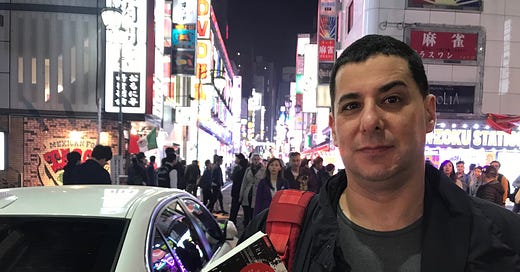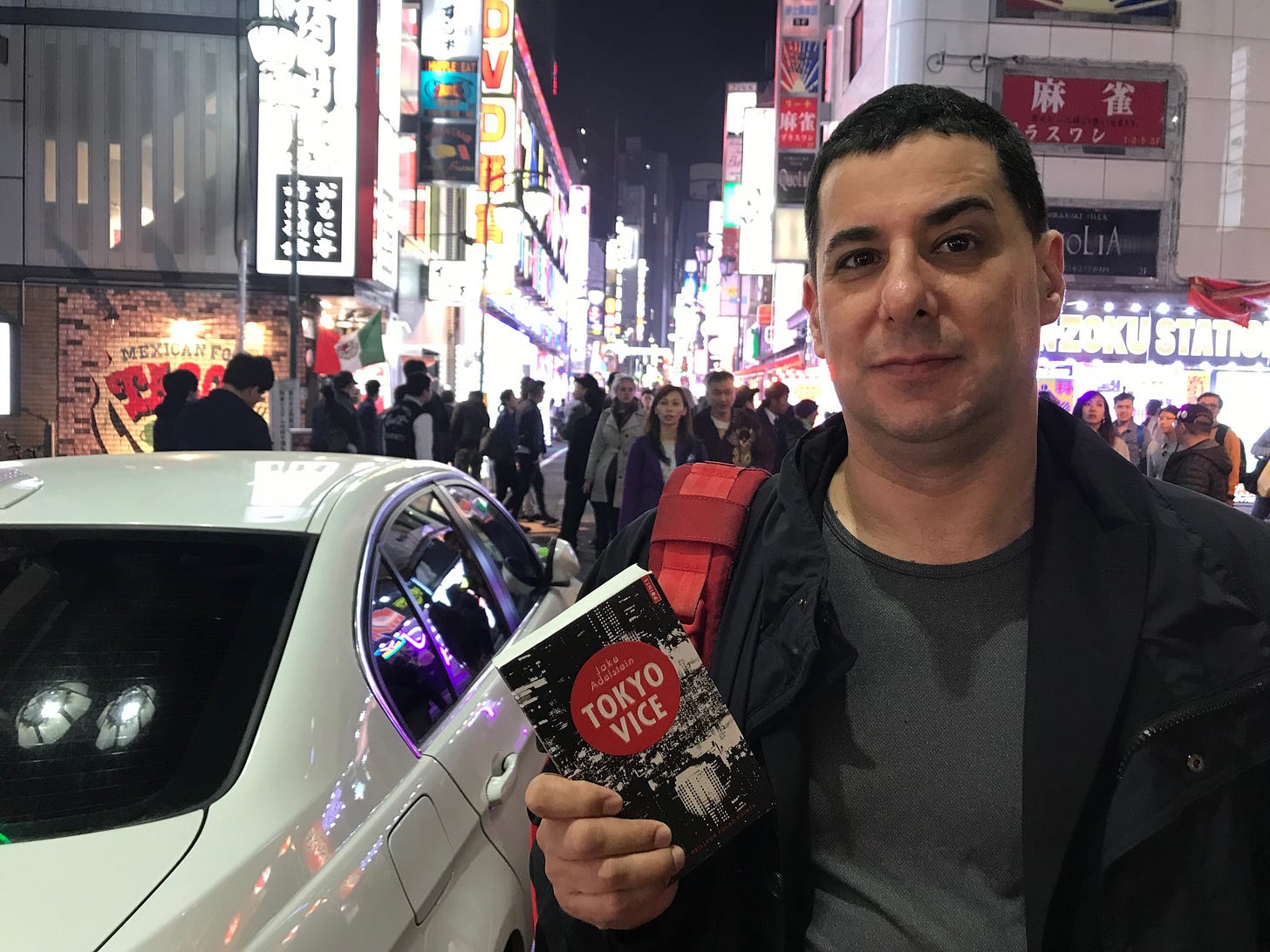That guy calling you "friend" in Kabukicho isn't your buddy. Watch out for Bottakuri bars in 'crime-free' Japan.
The Saitama Police did a sweep of the touts (barkers/kyakubiki/客びき) in the area, who lure unsuspecting customers into 'rip-off' bars. But it's not just a Saitama problem.
Saitama’s Nightlife Gets a Cleanup—Or at Least a Sweep
June 13th was just another muggy night in Saitama, the kind where the humidity clings to your clothes like guilt and the neon buzzes louder than your conscience. But for six unlucky low-life criminals, it ended with cuffs instead of cab fare.
The Saitama police, apparently tired of being asked if they “prefer a cabaret club or a girls’ bar,” sent out 50 of their finest on June 13 to sweep the entertainment districts near Omiya and Nishi-Kawaguchi stations. And sweep they did—netting six street hawkers, including a 35-year-old man whose résumé simply read: “Unemployed, but persistent.”
The crime? Asking the wrong questions to the wrong guys—who just happened to be undercover cops with no sense of humor and a keen dislike for scams masquerading as hospitality.
Under the Saitama Prefecture Nuisance Prevention Ordinance (Saitama-ken meiwaku kōi bōshi jōrei, 埼玉県迷惑行為防止条例)—it’s illegal to solicit customers on the street and guide them into places where women pour your drinks and pretend to be amused. Apparently, that's now considered a public nuisance. So if you’re feeling nostalgic for the bad old days, best to keep your suggestions about nightlife to yourself.
By April, complaints had already stacked up like bad karaoke—around 70 in total—ranging from aggressive hustling to the general corrosion of the local shopping street vibe. (Imagine trying to buy socks and getting a hard sell for a ¥30,000 “all-you-can-drink” special.)
And then there’s the big bad word of the evening: bottakuri (ぼったくり). That’s Japanese for “getting taken to the cleaners,” usually by people with nice suits and no shame. We’re talking inflated drink prices, vague "service charges," and the sudden arrival of someone built like a vending machine telling you it’s time to pay up or stay put. Complain too loudly, and you might get a free demonstration of “hospitality with consequences.”
The U.S. Embassy in Tokyo has been waving the red flag on this kind of thing for years. Their official safety advisory page warns about scams in nightlife districts like Roppongi and Kabukicho. They’ve got a greatest hits list of problems: Drink spiking, credit card fraud, customers being physically blocked from leaving until they cough up absurd amounts of yen.
One classic case back in 2015 involved two guys getting locked inside a Kabukicho club and told to hand over ¥240,000 before they’d be allowed to exit. That one joint alone earned 214 complaints in just four months. At that point, the business model wasn't hospitality—it was hostage-taking with a cocktail garnish.
This kind of behavior is illegal under Japan’s Law Regulating Adult Entertainment Businesses, also known as the Fueiho—(Fūzoku eigyō-tō no kisei oyobi gyōmu no tekiseika-tō ni kansuru hōritsu, 風俗営業等の規制及び業務の適正化等に関する法律)—which, despite its bureaucratic heft, boils down to: “Don’t run sleazy joints, and if you must, at least do it quietly.”
A few years ago when filming a documentary on the decline of the yakuza with VICE ASIA, the host of the program went drinking in Kabukicho—before our first day of filming. He was drugged and barely made it back to his hotel. Of course, his credit card was charged outrageous amounts of money and it took several hours to convince the Shinjuku Police to even hear him out and take down a criminal complaint. They didn’t want to deal with the crime because they knew it would be hard to prove fraud or assault—especially if the victim was going to leave the country.
Japanese victims rarely get the police to investigate these rip-off bars when they’ve been victims and if you’re a foreigner who doesn’t live here? The police probably won’t give you the time of day.
Many wards in Tokyo now forbid the touts (客引き/kyakubiki) from soliciting customers as well. Don’t listen to them, hire them or follow them is generally the advice they will give.
The takeaway? If a guy with too much hair gel and too few scruples sidles up to you outside Omiya Station and says he’s got a deal too good to be true, believe him—because it is. It will be too good to be true. In Saitama, the only thing cheaper than the drinks are the lies. And both might cost you more than you’re willing to pay.
For more on how not to spend your Tokyo vacation arguing over an ¥80,000 bar tab, visit the U.S. Embassy's Japan website and scroll down to the nightlife warnings. Or just remember the golden rule of going out: if you have to be invited in off the street, you probably don’t want to go inside.





Great article! Its also streetsmart 101! Don’t go anywhere with sketchy looking people!